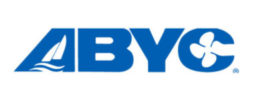WASHINGTON – The National Boating Safety Advisory Council has issued a set of resolutions directing the U.S. Coast Guard to analyze and address propeller strike prevention efforts underway in the recreational boating industry, the National Marine Manufacturers Association reported yesterday.
The council adopted five resolutions at an April 4 meeting directing the USCG’s Office of Boating Safety to begin a series of initiatives to address propeller injuries and fatalities in recreational boating. They are:
Pre-rental education — The NBSAC recommended that the Coast Guard develop a pre-rental education package for all rental motorboats operations to be distributed to the general public for the 2007 boating season. NBSAC also recognized that the U.S. Coast Guard is currently seeking legislative authority that would justify mandatory livery (boat rental) education.
Engine cut-off switch requirement – The NBSAC recommended that the Coast Guard begin a rulemaking process that would require manufacturers of new recreational motorboats (size/type determination to be supported by the Boating Accident Reporting Database analysis) to install an engine cut-off device that prevents continued operation in the event of the operator being displaced from the helm. This effort would complement a similar effort by the National Association of State Boating Law Administrators in its Engine Cut-Off Switches model act approved on Sept. 21, 2005.
Required use of engine cut-off switch link – The NBSAC recommended that the U.S. Coast Guard begin a rulemaking process that would require a boat operator to wear the engine cut-off switch link, if the boat is so equipped, while the engine is running. This requirement would not apply while the operator is assisting with the docking or departure of the vessel, while exiting or entering the vessel, or while the vessel is engaged in law enforcement or emergency rescue activity. This requirement would apply to waters subject to the jurisdiction of the United States but not to solely state waters.
Operator requirements concerning in-water activities – The NBSAC recommended that the Coast Guard begin a rulemaking process that would require the operator of a motorboat to shut off the engine if a swimmer is in close proximity to or holding onto the boarding platform, boarding deck, boarding step, or boarding ladder of the boat. This would not apply while the vessel is engaged in law enforcement or emergency rescue activity and would also only apply to waters subject to the jurisdiction of the United States.
Risk based and cost effect decision making — The NBSAC also recommended that the Coast Guard continue to pursue its previous resolutions recommending propeller injury prevention measures with a risk-based decision making approach.
“These are common sense measures, and we will be working with the Coast Guard to get the word out to our manufacturers and boaters about these NBSAC initiatives,” said Monita Fontaine, NMMA vice president of Government Relations.
The NBSAC also encouraged the Coast Guard to initiate a research project to test propeller guard technology for safety, drivability and efficacy. Propeller injuries resulted in 31 fatalities and were involved with 186 accidents in 2004. They are ranked ninth in reported boating accidents. By comparison, falls overboard resulted in 271 fatalities and capsizing resulted in 203 fatalities.
“All of these measures show that both the recreational boating industry and the Coast Guard care deeply about the safety of the boating public,” said Thom Dammrich, NMMA president. “The NMMA has worked to educate the public on the proper and safe operation of motorboats, and we continue these efforts to make boating the No. 1 past time for American families.”
The National Boating Safety Advisory Council was established by the Federal Boat Safety Act of 1971 and consists of 21 members drawn equally from state officials responsible for boating safety programs; representatives of the boating industry; and representatives of national recreational boating organizations and the general public. The law requires the Coast Guard to consult with the council in prescribing federal regulations, and regarding major boating safety matters.
- For more of the latest news, click here.




